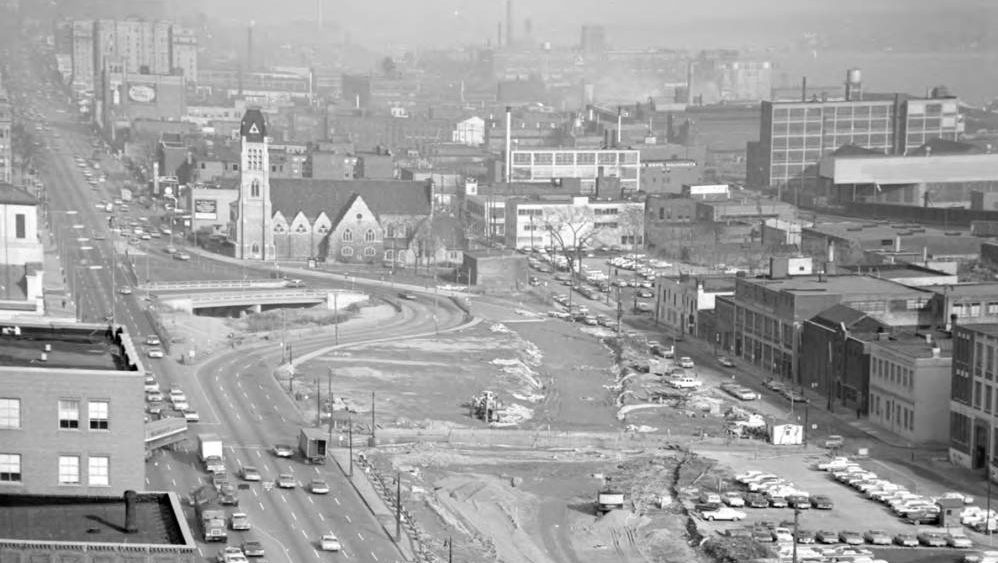Reckoning 375: A street level look at the plans to remove I-375
“Reckoning 375,” a new miniseries from “Detroit Today,” will explore the history behind — and repercussions of — the freeway’s construction, and what the replacement project will entail.

A view of the Chrysler Freeway, looking east from the roof of the City-County Building, 1964.
The Reckoning 375 series from Detroit Today continues this week with a deeper look at how the city’s I-375 Reconnecting Communities Project to replace the freeway with a boulevard will be implemented at the street level, and how it will affect neighboring communities, commuters and pedestrians.
Detroit Today host Stephen Henderson was joined on the show Friday by transit advocates and urban planners to discuss how they think 21st century principles are being incorporated — or not — into the transit and planning aspects of the redevelopment project.
Subscribe to Detroit Today on Apple Podcasts, Spotify, Google Podcasts, NPR.org or wherever you get your podcasts.
Guests:
Megan Owens is the executive director of Transportation Riders United, a public transit advocacy organization in the Detroit area. She says the project is prioritizing the interest of cars over people.
“My biggest concern is that it’s still, the primary purpose of this corridor will still be to move cars as smoothly as possible with very minimal attention to how to move actual people,” said Owens.
Todd Scott is the executive director of the Detroit Greenways Coalition and an advisor on the project’s advisory committee. He says since the road will be at the same level as pedestrians, the design needs to maximize safety for those crossing intersections.
“The focus of our work has been on, how do we minimize the size of these intersections to make it easier and safer for people on foot or biking to get across them,” said Scott.
Harley Etienne is an associate professor of city and regional planning at The Ohio State University. He says data analytics are a key part of trying to achieve reparative justice through this project.
“Were the highway not put in place, and those homes and businesses allowed to grow and appreciate in value in time, what would they have been worth and how do you begin to address that?” Etienne asked.
Bryan Boyer is an assistant professor at the University of Michigan’s Taubman College of Architecture and Urban Planning, and an advisor to the project’s advisory committee. He says the project is a special opportunity to envision the future of the area.
“If we transport ourselves to this place after the construction is done and the dust is settled, what are we going to be thinking about, what are we going to be feeling in that place, what might we hear and what might we say,” said Boyer.
Listen to Detroit Today with host Stephen Henderson weekdays from 9-10 a.m. ET on 101.9 WDET and streaming on-demand.
Trusted, accurate, up-to-date.
WDET strives to make our journalism accessible to everyone. As a public media institution, we maintain our journalistic integrity through independent support from readers like you. If you value WDET as your source of news, music and conversation, please make a gift today.
